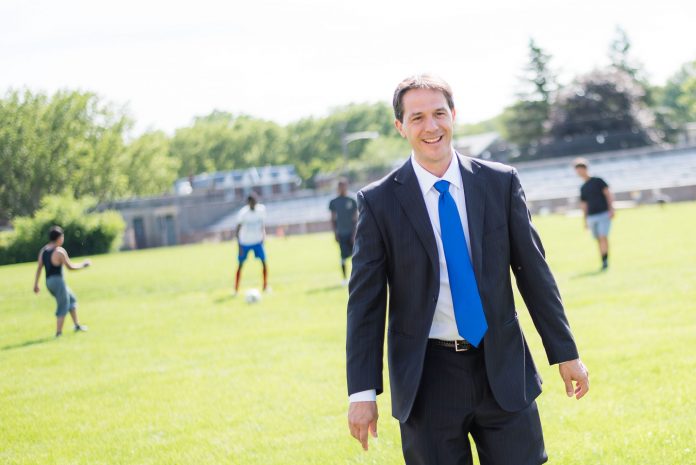By Rep. Joseph Hohenstein
On a recent Saturday, I participated in a cleanup of Deni Playground, right around the corner from where I grew up and where my parents still live. As I was leaving, I noticed a woman, staggering in the street, walking into parked cars. I got one of the Ray of Hope Church volunteers from the cleanup, and we went to her. She could not give us her name, was breathing erratically, and she had lost a shoe about a half-block back. I called 911, and the Philadelphia Fire Department EMTs arrived and took over with calm efficiency. I know they took her to Frankford Hospital from there. I don’t know what happened after that. I still don’t know her name.
We all know someone who has been affected by the opioid crisis that is gripping our commonwealth. Whether it’s a close family member or friends, too many have died and suffered at the hands of these drugs. According to the Centers for Disease Control and Prevention, nearly 13 people a day died from a drug overdose in 2017 in Pennsylvania, with more overdose deaths than any other state. Philadelphia accounted for 22 percent of those deaths. Prescription opioids and heroin deaths are the most significant health crisis we face today.
The problem has its roots in the over-prescription of opioid medication. Four out of five people living with opiate addiction started with pills from doctors, not syringes on the street. The City of Philadelphia has filed a suit against Big Pharma, the commonwealth of Pennsylvania needs to do the same. In other cases throughout the country, documents are surfacing about how these companies placed their profits over people. They knew the risks involved and still pressed their case for widespread use, pushing harder than any small-time drug dealer from K&A.
Big Pharma needs to pay. The bill for cleaning up their mess is too costly for taxpayers and the government to pick up alone.
The solution to the drug crisis requires stronger treatment systems that focus on early intervention and treatment of the whole person – not simply their physical addiction. When it comes to how our state treats these patients, I believe it’s a question of resources and a question of focus in our treatment. We’ve been most effective by focusing on treating the mental health and wellness of the patient first. When we focus on our communities and districts as people, not as numbers, we can see a great change take place and a shift in priorities. Too many lives are at stake, but it will take all of us coming together to work our way out of this epidemic.
So what do we need? Better pay and training for certified recovery specialists, who are some of the most effective front-line warriors in this fight. Legislation pending in front of the Human Services Committee would clarify Pennsylvania’s criteria for placing people into treatment (HB386); provide a registry of available treatment beds (HB596); and establish a system of warm handoffs to get people into immediate treatment after an overdose (HB424).
Other bills will soon be introduced to authorize suits against the profiteering companies, requiring training for safe opioid prescribing, converting old state hospitals to drug treatment centers and establishing new opioid-prescribing guidelines for chronic pain and other diseases.
We’ve seen successes with the Centers of Excellence that provide a full range of services, from medical issues to mental health issues to comprehensive and patient-centered intensive drug and substance treatment. We should continue to pursue these kinds of treatment centers, focusing on treatment that coordinates care for people with Medicaid and utilizing a team-based treatment focused on a holistic approach. These centers provide hope, meaning and purpose to these addicts’ lives. A stronger, more comprehensive treatment model will also take many people off the street – increasing the safety of our neighborhoods as well.
We need to have more open dialogue with our children, with our neighbors, with our loved ones. We must educate each other on substance abuse and what can happen as a result.
This is the best way for us to get our neighborhoods to be safe, happy places for our kids again. People’s lives are at stake. The viability of our communities is at stake. It’s not something that can be cured overnight, but if we all work together and spread awareness, we can help fight this epidemic and put ourselves on a better path. ••
Rep. Joseph Hohenstein, a Democrat, represents the 177th Legislative District.





